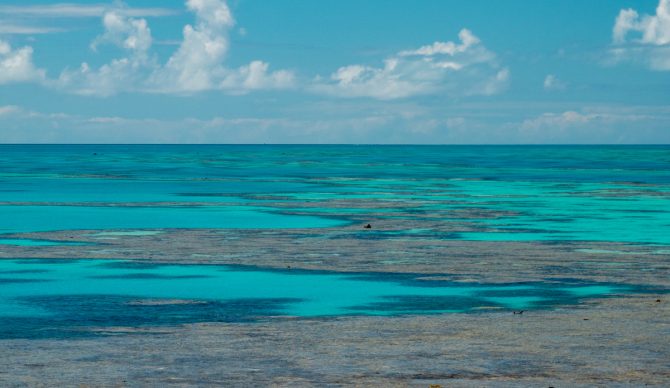
The great barrier reef is one of the worlds largest ecosystems. Photo: Nicolas Weldingh // Unsplash
Over the past decade, the Great Barrier Reef has endured the highest ocean temperatures recorded in 400 years. These findings come from a study, recently published in the journal Nature, that analyzed historical ocean temperatures to outline an existential threat to one of the world’s largest ecosystems.
The Great Barrier Reef stretches for 1,500 miles off the coast of Queensland, Australia. It is home to 400 types of coral, 1,500 species of fish and 4,000 types of mollusc, making it not only a vital ecosystem, but a place of great interest for scientists. However, like many oceanic ecosystems, the reef is under threat from anthropogenic climate change.
To learn more about the nature of this threat, a group of Australian scientists drilled cores into the coral and analyzed the samples to measure summer temperatures all the way back to 1618. The results were then combined with hundreds of years of ship and satellite data to get a full picture of historical ocean temperatures.
They found that ocean temperatures were stable for hundreds of years, then began to rise after 1900 as a result of human influence. From 1960 to 2024, they observed an average annual warming for January to March of 0.22°F per decade. Since 2016, though, the reef has experienced five summers of mass coral bleaching and six of the warmest years in the last four centuries. The last data point, from January to March of this year, was the highest on record and far above any other year.
“The world is losing one of its icons,” Benjamin Henley, an academic at the University of Melbourne and one of the study’s co-authors, told Reuters. “I find that to be an absolute tragedy. It’s hard to understand how that can happen on our watch in our lifetime. So it’s very, very sad.”

